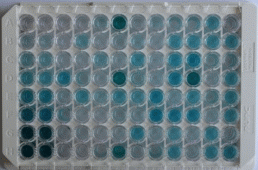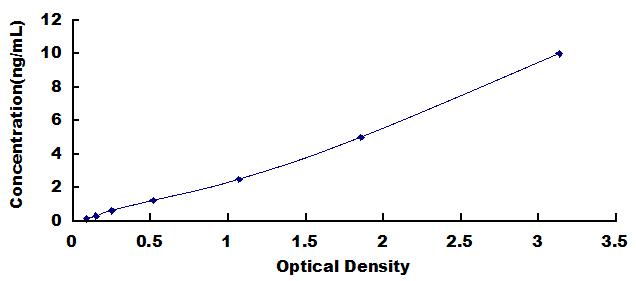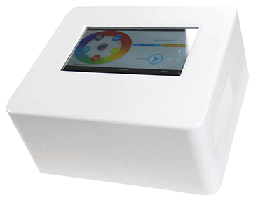Packages (Simulation)

Reagent Preparation

Image (I)
Image (II)
Certificate


ELISA Kit for Glial Cell Line Derived Neurotrophic Factor (GDNF)
ATF1; ATF2; HFB1-GDNF; Astrocyte-Derived Trophic Factor; Glial Derived Neurotrophic Factor
- Product No.SEA043Hu
- Organism SpeciesHomo sapiens (Human) Same name, Different species.
- Sample Typeserum, plasma, tissue homogenates, cell lysates, cell culture supernates and other biological fluids
- Test MethodDouble-antibody Sandwich
- Assay Length3h
- Detection Range0.156-10ng/mL
- SensitivityThe minimum detectable dose of this kit is typically less than 0.055ng/mL.
- DownloadInstruction Manual
- UOM 48T96T 96T*5 96T*10 96T*100
- FOB
US$ 384
US$ 548
US$ 2466
US$ 4658
US$ 38360
For more details, please contact local distributors!
Specificity
This assay has high sensitivity and excellent specificity for detection of Glial Cell Line Derived Neurotrophic Factor (GDNF).
No significant cross-reactivity or interference between Glial Cell Line Derived Neurotrophic Factor (GDNF) and analogues was observed.
Recovery
Matrices listed below were spiked with certain level of recombinant Glial Cell Line Derived Neurotrophic Factor (GDNF) and the recovery rates were calculated by comparing the measured value to the expected amount of Glial Cell Line Derived Neurotrophic Factor (GDNF) in samples.
| Matrix | Recovery range (%) | Average(%) |
| serum(n=5) | 92-102 | 95 |
| EDTA plasma(n=5) | 99-105 | 102 |
| heparin plasma(n=5) | 84-99 | 90 |
Precision
Intra-assay Precision (Precision within an assay): 3 samples with low, middle and high level Glial Cell Line Derived Neurotrophic Factor (GDNF) were tested 20 times on one plate, respectively.
Inter-assay Precision (Precision between assays): 3 samples with low, middle and high level Glial Cell Line Derived Neurotrophic Factor (GDNF) were tested on 3 different plates, 8 replicates in each plate.
CV(%) = SD/meanX100
Intra-Assay: CV<10%
Inter-Assay: CV<12%
Linearity
The linearity of the kit was assayed by testing samples spiked with appropriate concentration of Glial Cell Line Derived Neurotrophic Factor (GDNF) and their serial dilutions. The results were demonstrated by the percentage of calculated concentration to the expected.
| Sample | 1:2 | 1:4 | 1:8 | 1:16 |
| serum(n=5) | 81-88% | 78-103% | 89-96% | 89-101% |
| EDTA plasma(n=5) | 80-92% | 80-90% | 79-96% | 91-101% |
| heparin plasma(n=5) | 87-104% | 79-90% | 90-98% | 80-92% |
Stability
The stability of kit is determined by the loss rate of activity. The loss rate of this kit is less than 5% within the expiration date under appropriate storage condition.
To minimize extra influence on the performance, operation procedures and lab conditions, especially room temperature, air humidity, incubator temperature should be strictly controlled. It is also strongly suggested that the whole assay is performed by the same operator from the beginning to the end.
Reagents and materials provided
| Reagents | Quantity | Reagents | Quantity |
| Pre-coated, ready to use 96-well strip plate | 1 | Plate sealer for 96 wells | 4 |
| Standard | 2 | Standard Diluent | 1×20mL |
| Detection Reagent A | 1×120µL | Assay Diluent A | 1×12mL |
| Detection Reagent B | 1×120µL | Assay Diluent B | 1×12mL |
| TMB Substrate | 1×9mL | Stop Solution | 1×6mL |
| Wash Buffer (30 × concentrate) | 1×20mL | Instruction manual | 1 |
Assay procedure summary
1. Prepare all reagents, samples and standards;
2. Add 100µL standard or sample to each well. Incubate 1 hours at 37°C;
3. Aspirate and add 100µL prepared Detection Reagent A. Incubate 1 hour at 37°C;
4. Aspirate and wash 3 times;
5. Add 100µL prepared Detection Reagent B. Incubate 30 minutes at 37°C;
6. Aspirate and wash 5 times;
7. Add 90µL Substrate Solution. Incubate 10-20 minutes at 37°C;
8. Add 50µL Stop Solution. Read at 450nm immediately.
GIVEAWAYS
INCREMENT SERVICES
-
 Single-component Reagents of Assay Kit
Single-component Reagents of Assay Kit
-
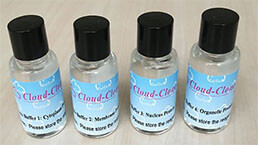 Lysis Buffer Specific for ELISA / CLIA
Lysis Buffer Specific for ELISA / CLIA
-
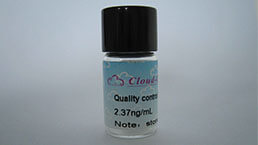 Quality Control of Kit
Quality Control of Kit
-
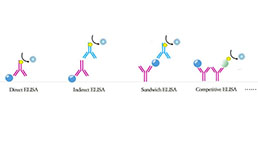 ELISA Kit Customized Service
ELISA Kit Customized Service
-
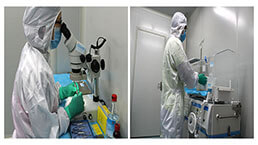 Disease Model Customized Service
Disease Model Customized Service
-
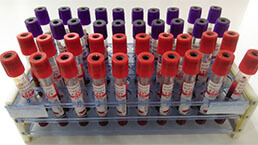 Serums Customized Service
Serums Customized Service
-
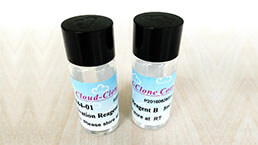 TGFB1 Activation Reagent
TGFB1 Activation Reagent
-
 Real Time PCR Experimental Service
Real Time PCR Experimental Service
-
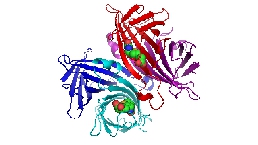 Streptavidin
Streptavidin
-
 Fast blue Protein Stain solution
Fast blue Protein Stain solution
-
 Single-component Reagents of FLIA Kit
Single-component Reagents of FLIA Kit
-
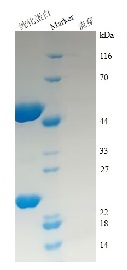 Streptavidin-Agarose Beads
Streptavidin-Agarose Beads
| Magazine | Citations |
| Molecular Neurobiology | Efficient Generation of Functionally Active Spinal Cord Neurons from Spermatogonial Stem Cells pubmed:27566610 |
| Chinese Medicial Journal | Safflower Extract and Aceglutamide Injection Promoting Recovery of Peripheral Innervations via Vascular Endothelial Growth Factor-B Signaling in Diabetic Mice PMC5717862 |
| The Chinese Journal of Integrated Traditional and Western Medicine Press and Springer-Verlag Berlin Heidelberg | Acupuncture Alters Pro-infl ammatory Cytokines in the Plasma of Maternally Separated Rat Pups pubmed:28986807 |
| Heroin Addiction And Related Clinical Problems | GDNF serum levels are found to be lower in opioid-maintained patients ISSN 2531-4122 |
| Journal of Environmental Research and Public Health | Effects of 220 MHz Pulsed Modulated Radiofrequency Field on the Sperm Quality in Rats Pubmed: 30974849 |
| Frontiers in Aging Neuroscience | The Effects of Nordic Walking With Poles With an Integrated Resistance Shock Absorber on Cognitive Abilities and Cardiopulmonary Efficiency in … Pubmed: 33192480 |
| EUROPEAN CHILD & ADOLESCENT PSYCHIATRY | Increased serum brain-derived neurotrophic factor and adrenocorticotropic hormone levels are associated with obsessive compulsive disorder in medication?free?¡ 33389158 |
| Int J Biol Macromol | The effect of biodegradable silk fibroin-based scaffolds containing glial cell line-derived neurotrophic factor (GDNF) on the corneal regeneration process 34119551 |
| Inflammopharmacology | Silymarin constrains diacetyl-prompted oxidative stress and neuroinflammation in rats: involvements of Dyn/GDNF and MAPK signaling pathway Pubmed:35366745 |
| Molecular Biology Reports | Umbilical cord-derived mesenchymal stem cell conditioned medium reverses neuronal oxidative injury by inhibition of TRPM2 activation and the JNK signaling … Pubmed:35585377 |

